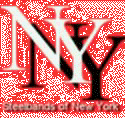|
|
|||||||
|
By AMH
The premise is that smaller “community bands” should benefit from the new format of Panorama. By changing the format of Panorama, Pan Trinbago has either saved small band pan, or rang its death knell. Time will tell, but is seems as if Panorama competitions of the future are destined be comprised of mostly the same bands. Do any of us envision a day when All Stars, Exodus, Renegades, Despers and Phase II don’t “make”? Are we now, in fact, just doomed to a cartel of competition? As I sit and think about the new format, I can’t help but wonder if the changes were made for change sake, or if there was some other aim in mind. It is hard to argue with the history that shows that, with few exceptions, these big bands always win the Panorama anyway, but this new format could allow a manipulation of the system driven purely by economics. With the exception of pride, what keeps a formerly large band from jettisoning a few players and sweeping up the medium category? Pure economics may drive bands to this measure regardless of pride. As the avalanche keeps rolling, medium bands can push down into the small category, purely for money. Add to this the fact that arrangers can cross categories, then hypothetically Clive Bradley could arrange for Desparadoes in the “Large” band category, and Nutones could enter the “Medium” category and also avail themselves of his services. This despite Pan Trinbago’s efforts to control arrangers economically with their “one man one band” rule. As the art form has become more commercialized, creative ways of circumventing the rules will always arise, and certainly this will kill community pan. Only the most adept at seeing pan as a business and less as a contribution to the community will be successful. At any rate, the loss will be felt in the community mainly through the youth, who will have been sacrificed for some unachievable commercial gain. It has been said that Panorama gate receipts have dwindled. On the other hand, the stands are full of people. Understanding that the two are not mutually exclusive, how does one get more paying customers while at the same time ensuring that the entire audience has paid? Simple. Restructure the event. Does anyone really think that more people will be willing to pay to see the panorama now that it is shorter? It has been my (admittedly limited) experience that the people who want to see Panorama are willing to stay all night to hear good pan. Panorama transcends the traditional concert model, and can not be treated as one. Could it be streamlined? Sure. Would it be nicer if the logistics didn’t dictate a longer show? Of course. Do the changes, however, address these problems? Maybe not. The term “think outside the box” has become cliché in a short span of time, however it applies to the current dilemma of pan. Maybe if there were less dependence on gate receipts and more on air rights and licensing, the need to restructure wouldn’t be so pressing. If treated mathematically, one would argue that the subset of people in Trinidad able and willing to pay to see pan is considerably smaller than the subset worldwide. The market will grow with the artform. Maybe the answer is to cultivate this larger market through other events, and leave the Panorama as the piece de resistance of a larger pan season. This would enable a larger segment of the world population to see the Panorama, while still making it available to its grass roots supporters. Whatever the solutions, the leaders of pan must have a vision and a plan to implement it. There’s more at stake here than money.
|
Date: 02.17.04
Let us hear your
views
2004 Trinidad & Tobago
Panorama Results
home
|
||||||





